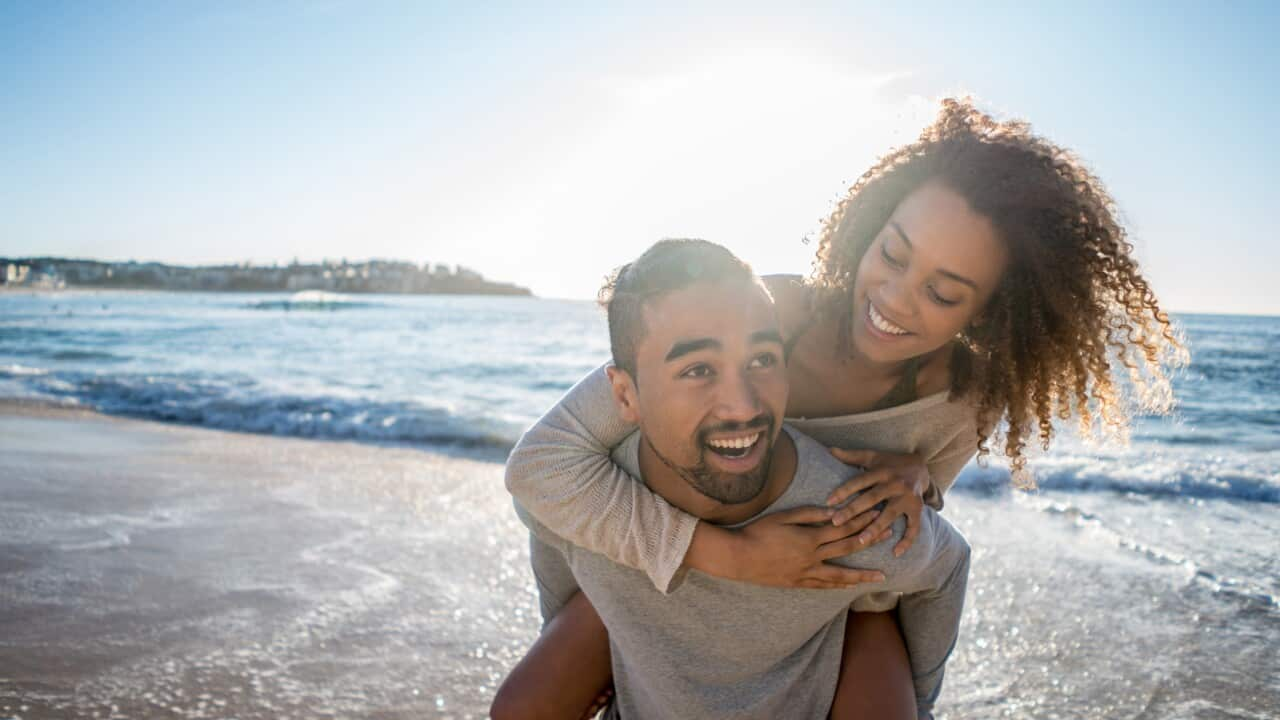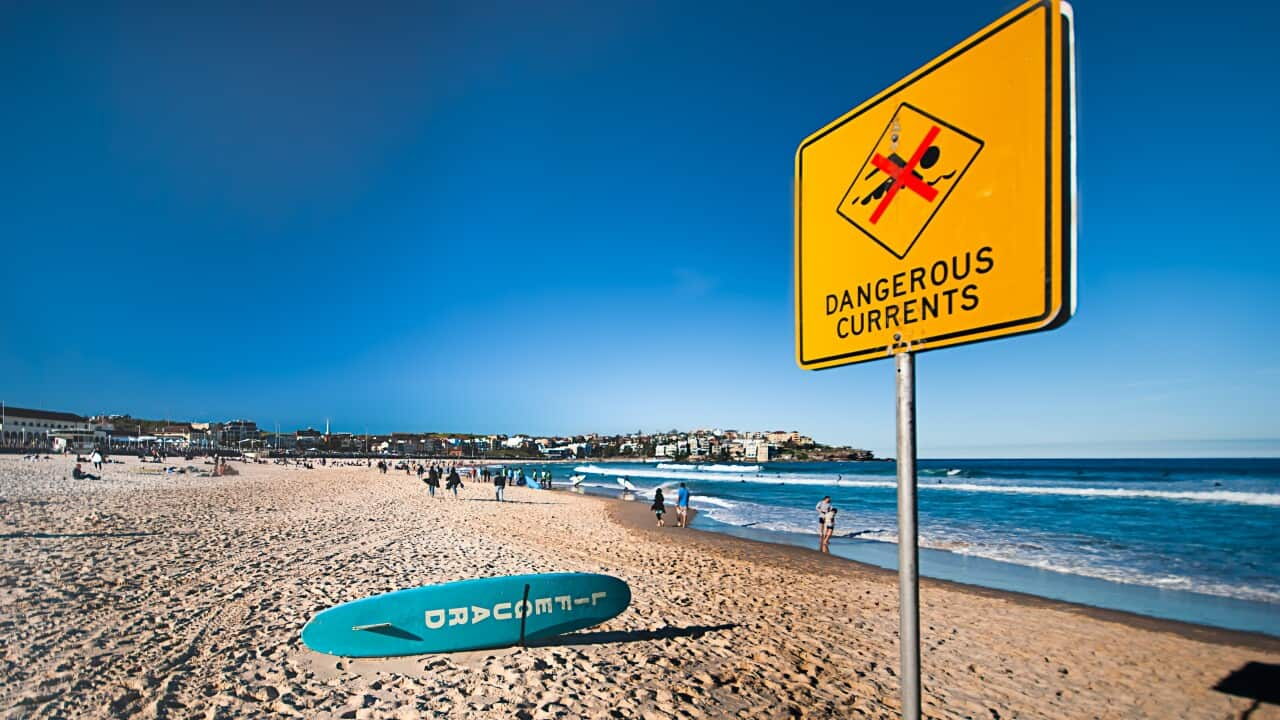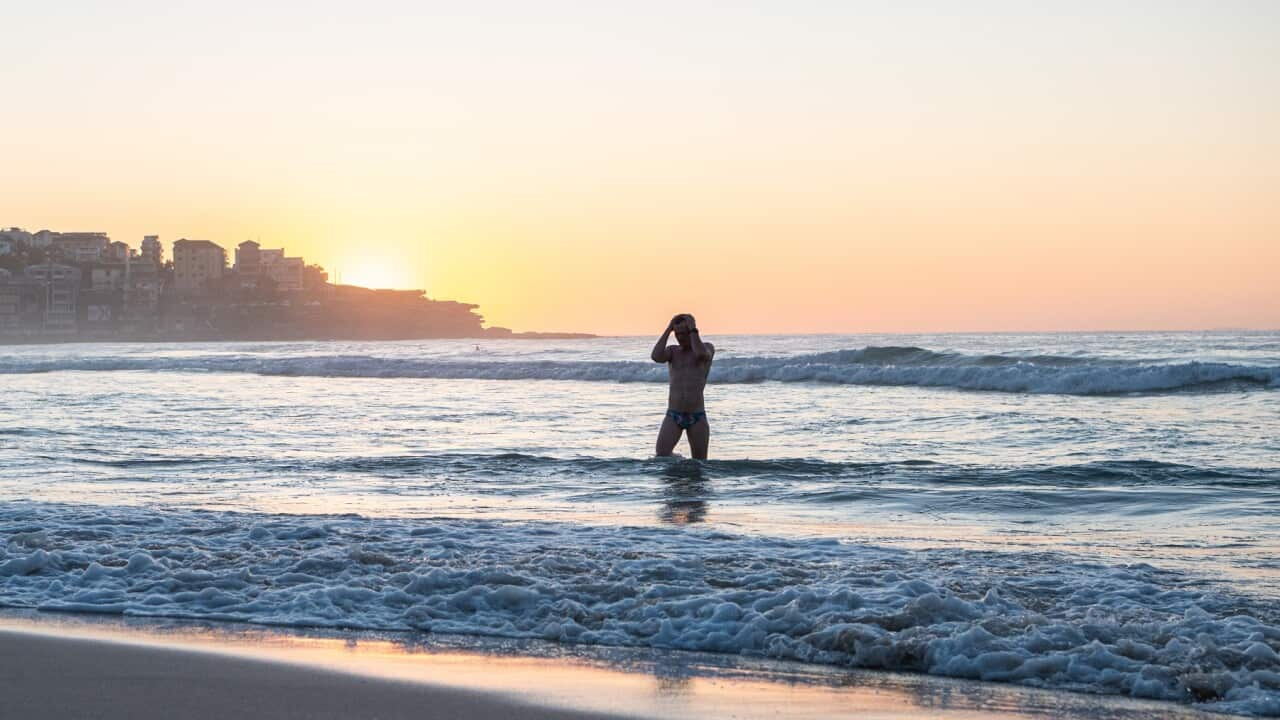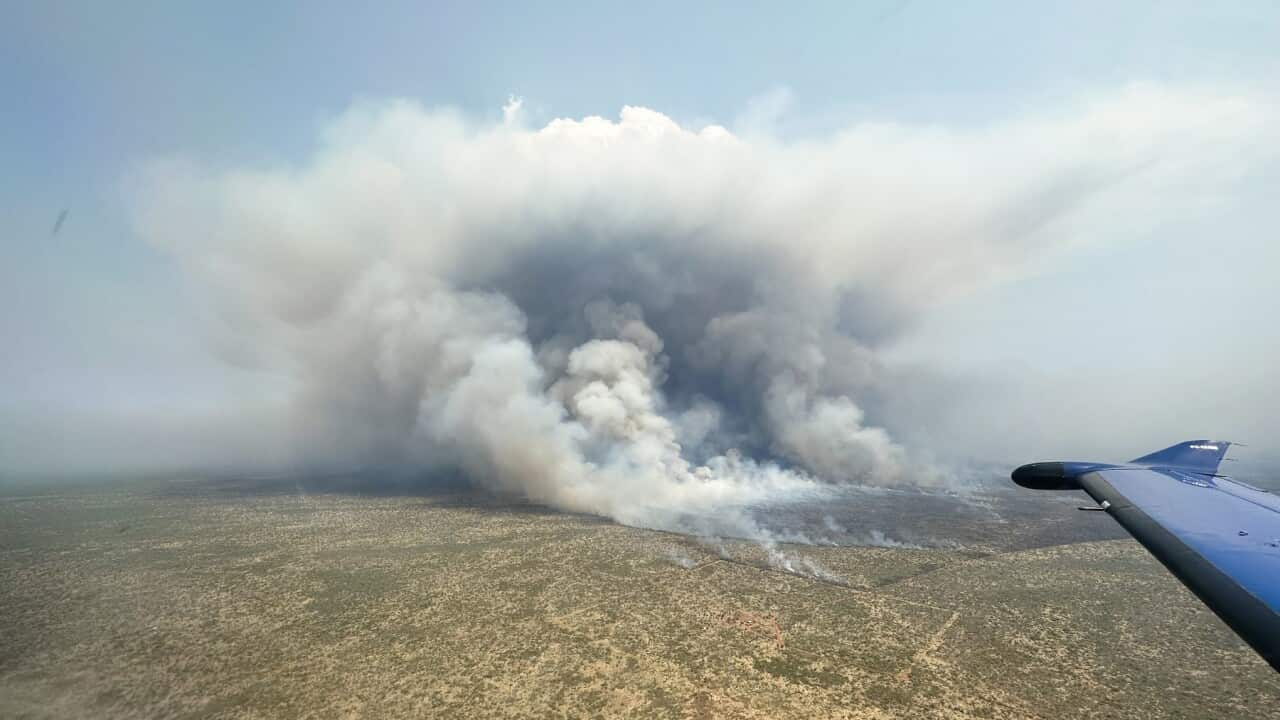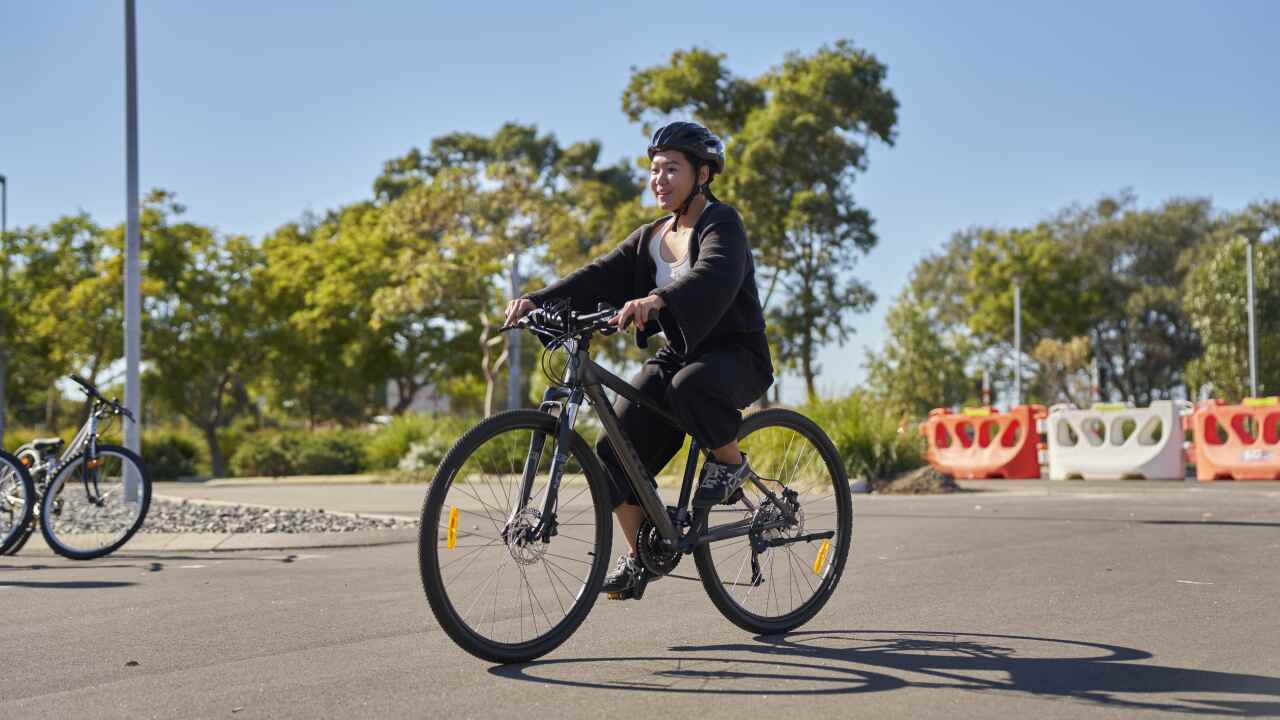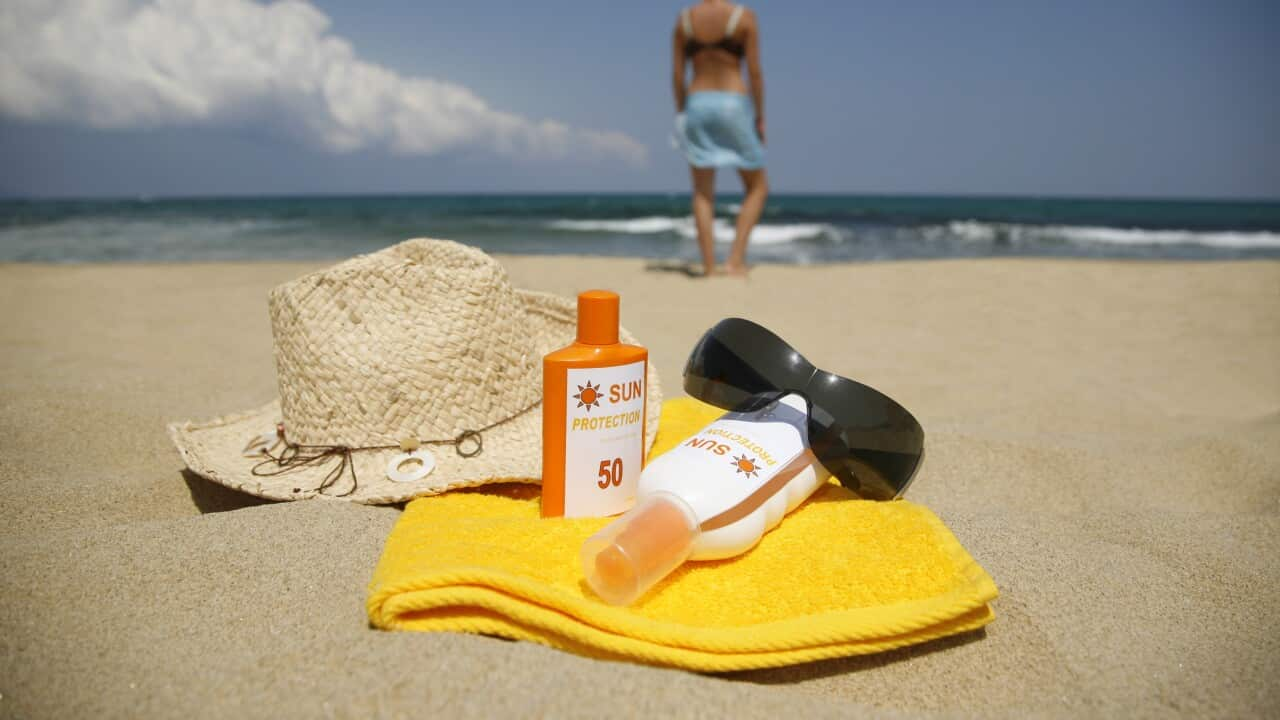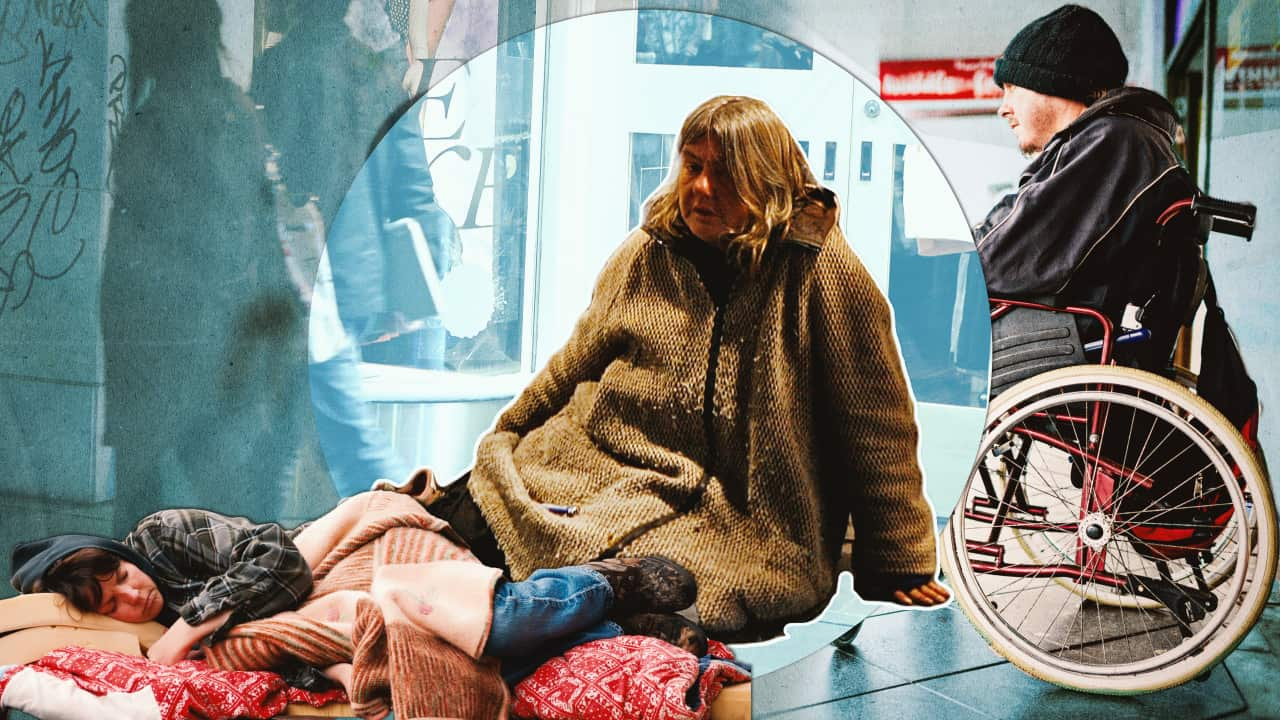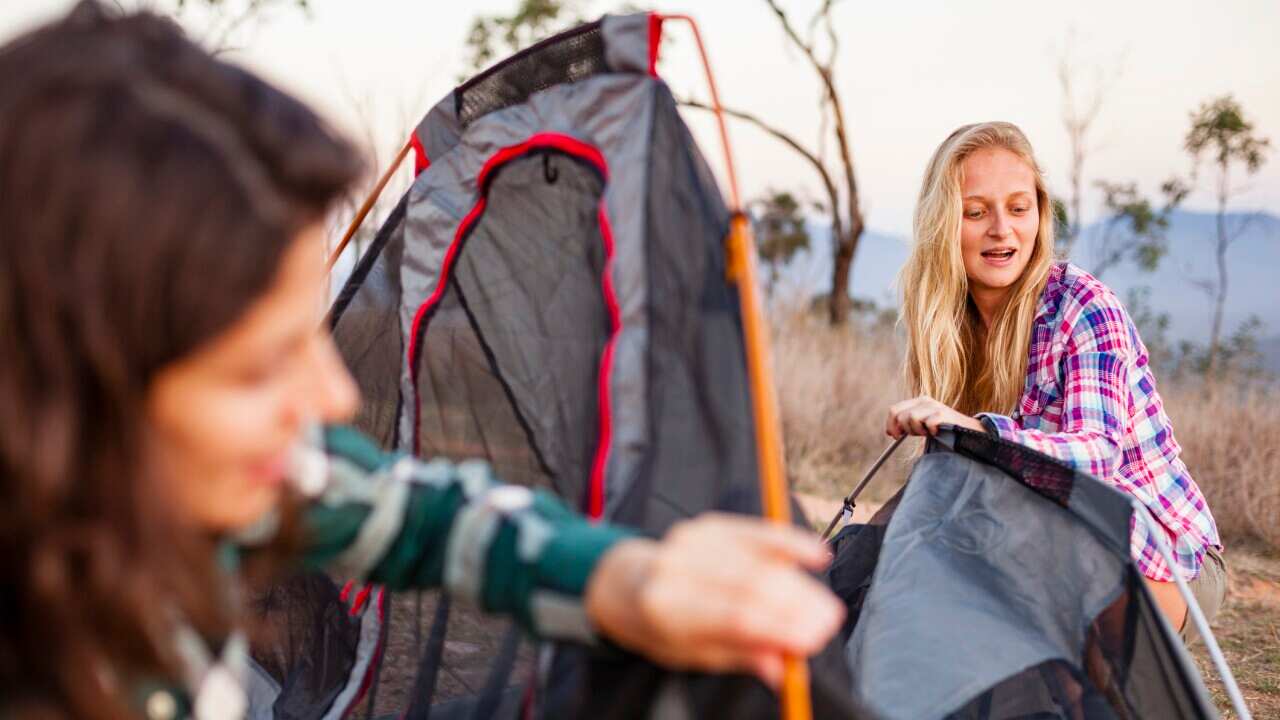Key Points
- Hydrating with water or electrolytes is vital during a hot summer day.
- Use sunscreen with SPF 50 or higher whenever you are outdoors.
- Always check the UV index before going out.
“Our body is a finely tuned machine. We have a built-in thermostat that helps us stabilise our body temperature,” Sydney-based GP Angelica Logarta-Scott shares.
The body reacts in different ways to maintain stability when it comes to heat.
Physiological responses to heat
When the weather is hot, our bodies use various mechanisms to cool down; the main one is sweat, Dr Logarta-Scott explains.
When it’s hot, our sweat glands release water or sweat, which then evaporates from our skin and helps break away the heat and cools the body down.Dr Angelica Scott
In addition to sweating, blood vessels in our skin also dilate, or open up, allowing us to release heat through the skin.
“That’s why we look flushed when it’s hot,” she adds.
Dr Logarta-Scott also mentions a bodily process called ‘heat dissipation’ that occurs during hot weather.
“Your body will try to move the heat away from your core and towards your extremities. When this happens, your arms, hands and legs get sweatier.”
Apart from sweat and flushed skin, Dr Logarta-Scott explains that heat brings about faster and shallower breathing. Hot air tends to be ‘heavier’ than air that is of ‘normal’ temperature.
She draws a comparison to dogs panting in hot weather as their way of cooling themselves. "Humans also experience rapid breathing as we try to expel heat."
While heat can bring about these usual symptoms, extreme temperatures can lead to heat-related illnesses and overheating, Dr Logarta-Scott warns.
Overheating is a medical emergency. It’s important to know the signs when it comes to heat exhaustion. Symptoms include heavy sweating, weakness, nausea, dizziness, a weak pulse or a quick heart rate that drops, confusion and dry skin. Some may even collapse.Dr Angelica Logarta-Scott
Professor Anne Cust, Chair of ’s National Skin Cancer Committee, suggests that people should prepare for a hotter summer.
“With climate change, it will be increasingly difficult for Australians to spend time outdoors. We have things like bushfires and floods and all that comes with climate change. Extreme weather is something that we will be dealing with.”
Tips to stay cool and safe
To avoid overheating or heat-related illnesses during hot summer days, Dr Logarta-Scott advises to take the following advice:
1. Hydrate with water or electrolytes.
“Make sure to replace lost fluids with water, so always drink throughout the day. It’s important to always have a bottle of water with you.
“Sometimes we think we’ve drunk enough water, but in truth, we haven’t. We should actually be drinking three litres of water a day.”
While water is always the go-to fluid during a hot summer day, Dr Logarta-Scott warns against alcoholic beverages and sodas.
“People will think that they’ve quenched their thirst with a can of soda, but soda is high in sugar and not an ideal way of hydrating.
“If you really need your fluid to have a particular taste, a better alternative to soda would be... sports drinks that help replenish your electrolytes.”
2. Avoid certain foods.
“Fruits and vegetables are great to eat during hot weather, especially water-rich produce such as watermelon and cucumber.”
Dr Logarta-Scott says choose light and easily digestible meals over heavier and fattier ones to maintain a cooler body temperature.
“Heavier meals and foods that are high in sugar will only make your body work harder and cause your body temperature to rise.”

Stay hydrated throughout the day as a critical preventive measure against heat exhaustion. Credit: The Good Brigade/Getty Images
According to Emma Glassenbury, Head of , there are five important things that protect people from the sun and UV radiation.
“Use all five forms of sun protection: protective clothing, a wide brim hat, sunglasses, sunscreen, and shade for extra protection,” she shares.
While it is commonplace to use sun protection when going to the beach or doing water activities, Ms Glassenbury says they should be integrated into people’s daily routines.
“SunSmart Victoria has launched a new campaign, ‘Don't Let Cancer In’ and it's really driving home the importance of using good sun protection to prevent skin cancer.
“It doesn't matter what activities you're doing. If you're walking the dog, gardening, looking after the kids in the backyard or walking outdoors, cover up.”
4. Base your activities on the day’s weather and UV levels.
Before heading outdoors or exercising, Dr Logarta-Scott recommends checking the weather forecast for the day.
“Check in on the weather so you’re prepared.
“When you know that temperatures are high, avoid outdoor activities if possible. Generally, midday to around 3pm tend to be the hottest times of the day, so try to avoid being outside during that time.”
Professor Cust adds that it’s important to check the ultraviolet (UV) levels for the day before heading outdoors.
Consistent exposure to high UV radiation is the primary cause of skin cancer.
According to Professor Cust, “We get much more intense UV radiation exposure in Australia, which we think explains why the rates of skin cancer are the highest in Australia and New Zealand, and they are almost double what they are in Europe.”
She emphasises that UV radiation cannot be seen or felt, and that it is not dictated by how hot the day is.
“Most places in Australia have a UV index that peaks at around 12 to 14 in the summer months, whereas in southern parts of Europe around the Mediterranean, it only gets up to about a UV index of about eight.
“If it's a cool day, the UV index can still be quite high. If there's a light breeze around, it can feel quite cool outside, but the UV index can be very high.”

Most places in Australia have a UV index that peaks at around 12 to 14 in the summer months Credit: Six_Characters/Getty Images
According to Dr Logarta-Scott, if you know that you easily get exhausted, can’t exercise for long in hot weather or feel unwell, give your body a break and seek help. You know the capacity of your body.
“But if you really love sunbathing, taking walks or exercising outdoors, just be very mindful of your body’s signals. When you feel that you are really starting to push your body to its limits, take a break and find ways to stay cool and hydrated.”
Ms Glassenbury agrees with Dr Logarta-Scott, adding, “we live in a fantastic country with beautiful outdoor spaces, but with this comes some extreme UV Levels which can cause skin cancer. So, we want people to enjoy the outdoors, but when the UV level hits three and above, to cover up.”
